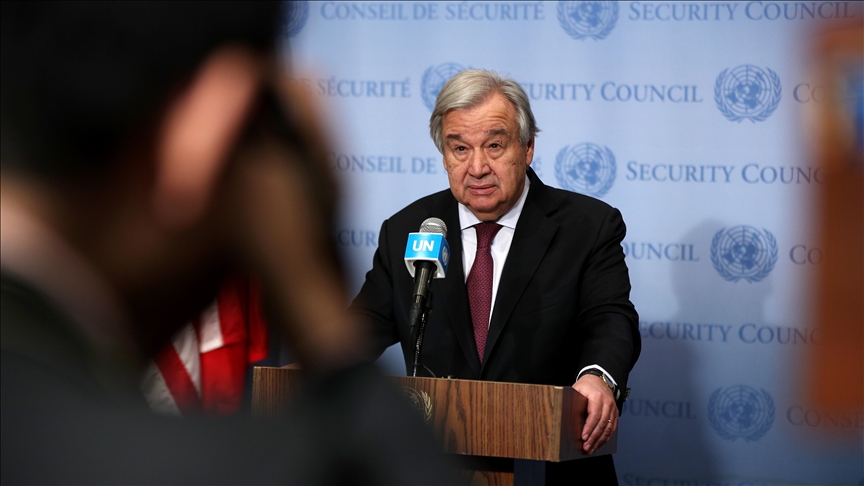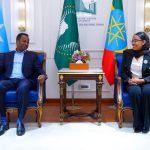GENEVA(SONNA):UN Secretary-General Antonio Guterres urged India and Pakistan to “come together” and solve their problems as any military confrontation would be a disaster.
“Our good offices are always available [for mediation] and we will insist within it… finding peaceful solutions for problems that have no military solution,” he said at a news conference at UN headquarters in New York that was aired live late Thursday.
Guterres was referring to his statement made on the disputed Jammu and Kashmir region after India unilaterally annexed the region Aug. 5, 2019.
The UN chief encouraged the resolution of the Kashmir dispute according to UN resolutions and its charter.
“It is clear when seeing Pakistan and India, any military confrontation between the two would be a disaster of unmitigated proportions for both countries and for the whole world,” said Guterres.
“[It] is absolutely essential to have a de-escalation of the situation, namely in the Line of Contact [Line of Control, or LoC],” he said, referring to the dividing line in Jammu and Kashmir which has seen a recent escalation of cease-fire violations.
The UN deployed a military observer group (UNMOGP) on the two sides of the LoC to monitor the cease-fire and Pakistan last month accused India of “specifically targeting” UNMOGIP officials in the Chirikot sector of Azad Jammu and Kashmir along the LoC.
New Delhi has denied involvement.
“It is essential that human rights are fully respected in all territories,” he said.
A report by the Legal Forum for Kashmir assessing the human rights situation in India-administered Kashmir in 2020 said 474 people, including 232 suspected militants and 177 Indian troops, were killed in the region.
Sixty-five civilians were killed “extrajudicially,” the report claimed.
Indian authorities said 225 militants were killed in Jammu and Kashmir last year while 16 policemen and 44 Indian soldiers died in operations or militant attacks.
Last year, during a visit to Pakistan in February, the UN chief emphasized de-escalation and diplomacy in the resolution of the Kashmir dispute.
“UN Security Council resolutions [should] be implemented, humans rights respected and continental freedoms” allowed in the Himalayan region, he said.
“In relation to the ceasefire, I visited UNMOGIP. We believe that UNMOGIP should have full freedom of movement. It has on the Pakistani side, we hope that this will also be achieved on the other side. We will be strengthening its equipment capacity in order to better be able to implement its mandate,” Guterres said at a news conference in Islamabad alongside Pakistani Foreign Minister Shah Mahmood Qureshi.
Kashmir, a Muslim-majority Himalayan region, is held by India and Pakistan in parts and claimed by both in full. A small sliver of Kashmir is also held by China.
Since they were partitioned in 1947, New Delhi and Islamabad have fought three wars – in 1948, 1965 and 1971 – two of them regarding Kashmir.
Also, in the Siachen Glacier region of northern Kashmir, Indian and Pakistani troops have fought intermittently since 1984. A cease-fire took effect in 2003.
Some Kashmiri groups in Jammu and Kashmir have been fighting Indian rule for independence or unification with Pakistan.
According to several human rights organizations, thousands have reportedly been killed in the conflict since 1989.





